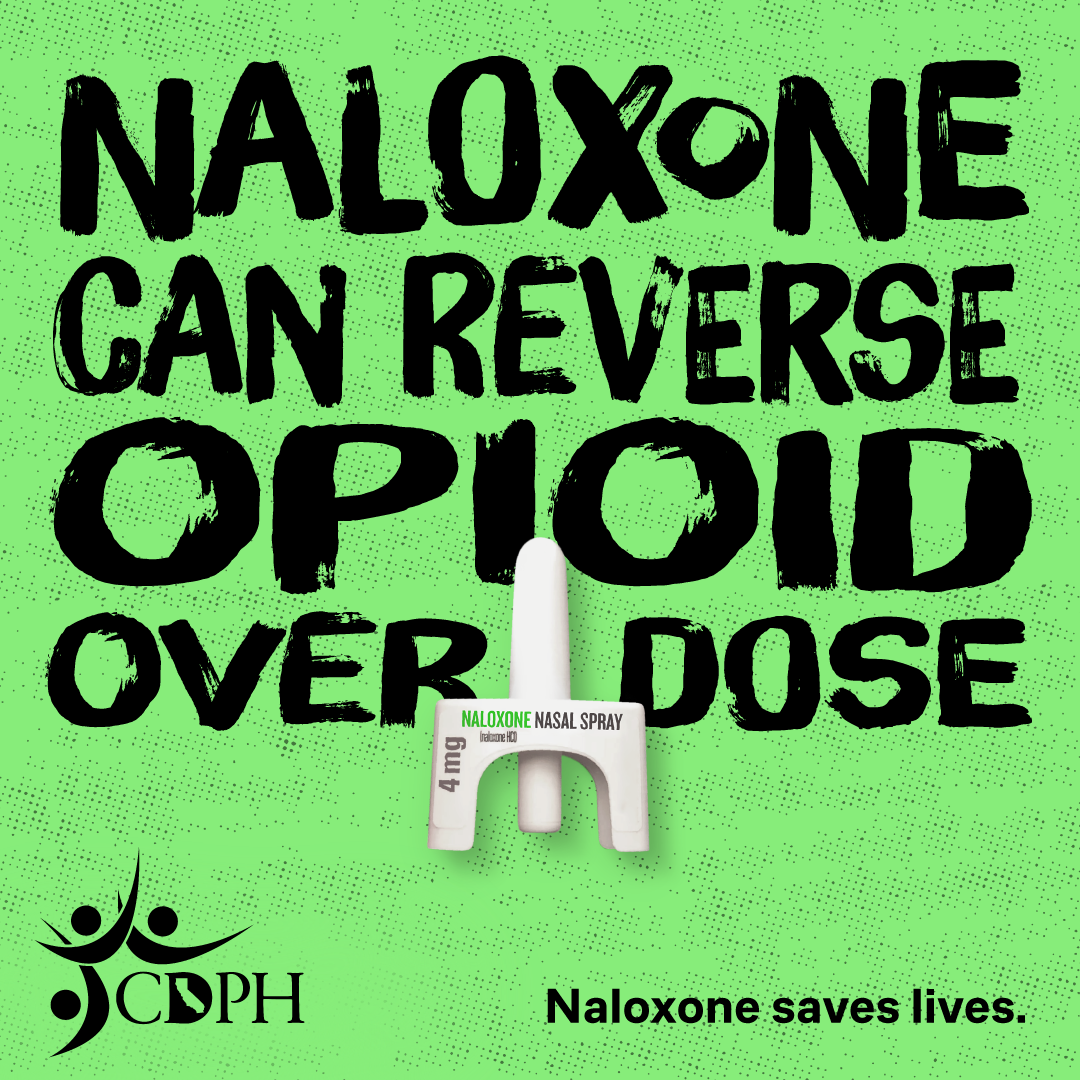CDPH Launches First Phase of Opioid Prevention and Education Campaign
Opioid Prevention and Education Campaign to Focus on Prevention, Education, and Awareness of Fentanyl Dangers, and Lifesaving Naloxone
WHAT YOU NEED TO KNOW: The California Department of Public Health is launching the first phase of an opioid and fentanyl prevention and education campaign today. Advertisements developed by federal partners will launch on social media, radio, television, billboards and bus stops next week.
SACRAMENTO – To help address the opioid overdose crisis, today the California Department of Public Health (CDPH) is launching the first phase of a statewide opioid and fentanyl overdose prevention and education campaign. This effort is part of Governor Gavin Newsom’s March 2023 Master Plan to tackle the fentanyl and opioid crisis. Due to the urgency of the fentanyl crisis, initial messaging for the campaign launches in September, followed by an expansive campaign in summer 2024. The campaign is anticipated to continue through 2025.
“It is imperative that we continue to address the opioid crisis head on,” said CDPH Director and State Public Health Officer Dr. Tomás Aragón. “Each year, thousands of Californians die due to opioid-related overdoses. Our 2022 preliminary reports reflect nearly 7,000 opioid-related overdoses and just over 6,000 of those overdoses involved fentanyl. These are not just numbers these are people who have families and are a part of communities across our state – the opioid crisis is impacting everyone. This campaign will be comprehensive and far-reaching, with an emphasis on the most at-risk populations in our communities.”
Campaign Details
The campaign will include messaging in English and Spanish across a multitude of communication platforms, including social media, radio, television, and outdoor advertising, such as billboards and bus stops. The first phase of the campaign aims to prevent substance use and raise awareness of fentanyl contamination among teens, young adults, and adults, and will be directed towards people aged 16 to 39.
TV Spots (English)
TV Spots (Spanish)
Radio Spot
- What Else :30 (MP3, 1.2MB)
Social Media Imagery
Additional campaign assets, including more shareable social media content is available in the Fentanyl & Opioid Overdose Prevention social media toolkit.
California’s Actions to Prevent Overdose and Save Lives
The Opioid Prevention and Education Campaign is part of CDPH’s Substance and Addiction Prevention Branch’s Overdose Prevention Initiative, which collects and shares data on fatal and non-fatal drug-related overdoses, drug-related overdose risk factors, prescriptions, and substance use. The Overdose Prevention Initiative supports substance-use prevention programs through evidence-based tools and strategies, public awareness and education, and promoting safe and effective prescribing and treatment practices throughout the state.
This summer, Narcan nasal spray, a formulation of naloxone, will become available to purchase over the counter directly to consumers in places like drug stores, convenience stores, grocery stores and gas stations, as well as online.
Earlier this year, California implemented the Campus Opioid Safety Act, which aims to reduce opioid-related overdoses and deaths through public colleges and universities providing life-saving education, information, and federally approved opioid overdose reversal medication on campus.
In 2018, California launched the Naloxone Distribution Project to combat opioid -overdose related deaths throughout California. The Naloxone Distribution Project aims to address the opioid crisis by reducing opioid overdose deaths through the provision of free naloxone.
Additional overdose data is available through the California Overdose Surveillance Dashboard.
Opioid and substance use prevention resources for people who use drugs, and information on naloxone and fentanyl are available from CDPH’s Substance and Addiction Prevention Branch.
Spanish language resources: personas que usan drogas, naloxona, and información sobre el fentanilo.













